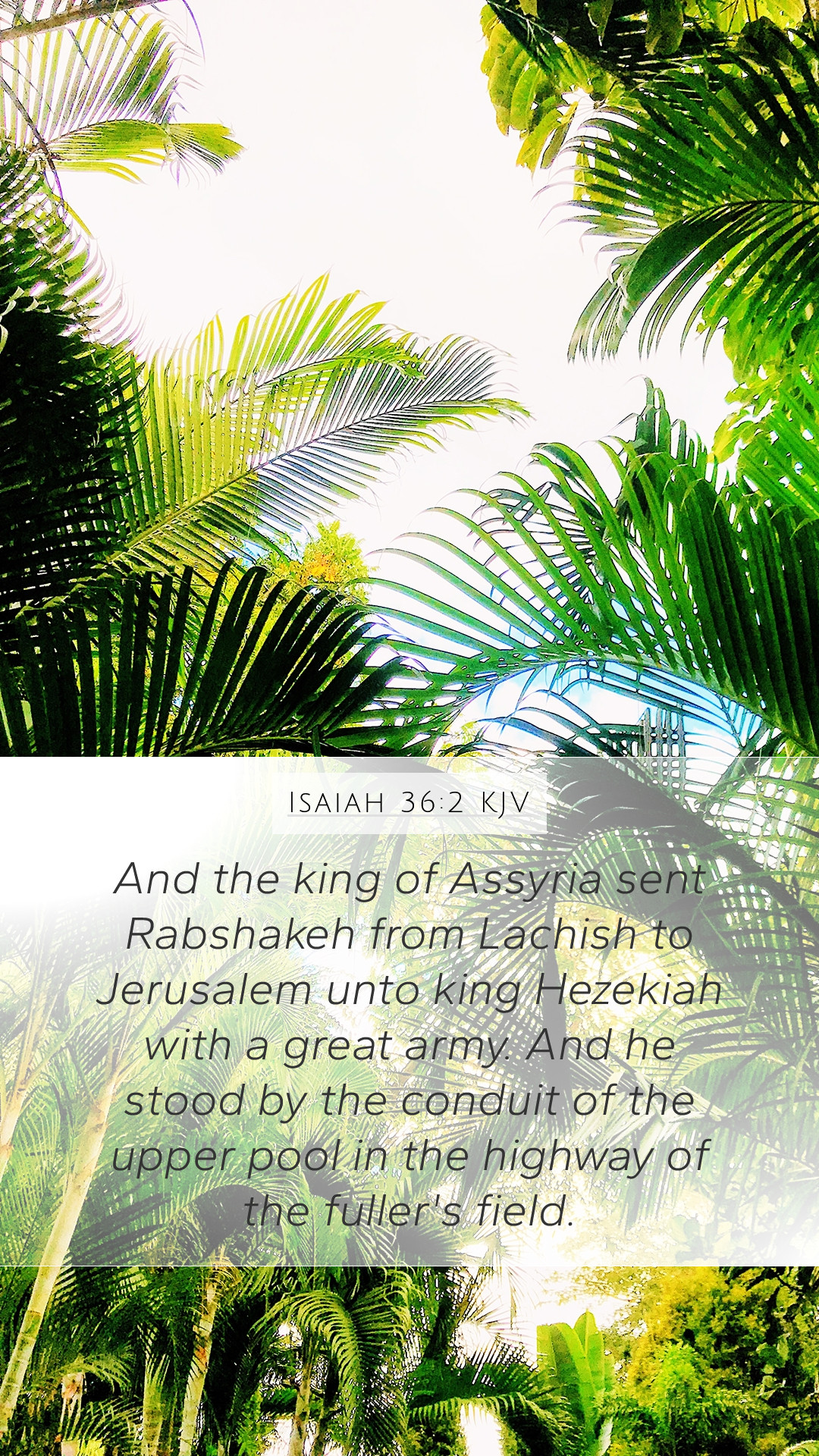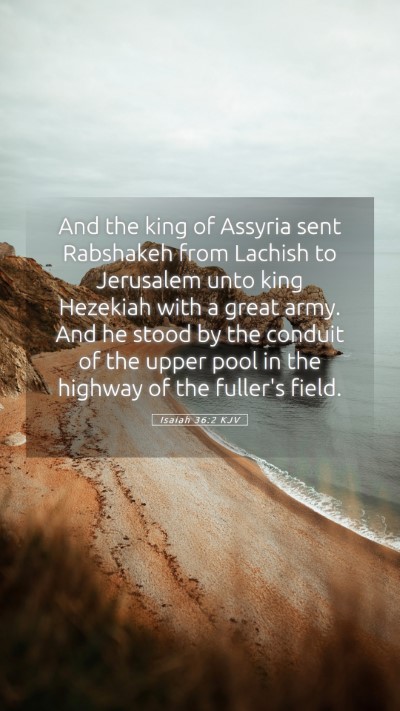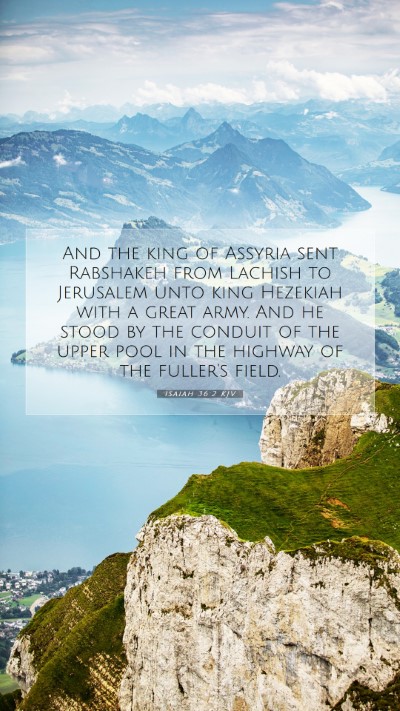Understanding the Meaning of Isaiah 36:2
In Isaiah 36:2, we see a critical moment in biblical history that holds profound implications for understanding Scripture and the faithfulness of God to His people. This verse states:
“And the king of Assyria sent Rabshakeh from Lachish to Jerusalem unto King Hezekiah with a great army. And he stood by the conduit of the upper pool in the highway of the fuller's field.”
Contextual Overview
This passage occurs during the reign of King Hezekiah, a time marked by political turmoil and military threats against Jerusalem. The Assyrian Empire, under King Sennacherib, was advancing, and their army sought to conquer the city. Understanding the historical context is essential for interpreting this Scripture.
Biblical Exegesis
Analysis of this verse reveals insight into the practices of ancient warfare and diplomacy, as well as the religious implications of trusting God amidst crises.
- Historical Significance: Assyria was a dominant power, known for its ruthless conquest. Their siege of Jerusalem represents a moment of dire desperation for the Israelites.
- The Role of Rabshakeh: Rabshakeh, the representative sent by the king of Assyria, was known to intimidate and persuade through threats and propaganda.
- Symbolism of the Upper Pool: The location described in the text—the upper pool—symbolizes a point of provision and faith. A pool represents resources, both physical and spiritual.
Insights from Public Domain Commentaries
Matthew Henry's Commentary
According to Matthew Henry, this event highlights the arrogance of Assyria as it approaches the people of God. He emphasizes that despite outward oppression, God’s people must remain steadfast in faith and reliance upon divine assistance. Henry notes:
“The strength of Assyria can intimidate, but it can never triumph over the faith of God's true servants.”
Albert Barnes' Commentary
Albert Barnes elaborates on the diplomatic strategy employed by Assyria, noting that the choice of envoy—Rabshakeh—was a calculated decision aimed at undermining Hezekiah's confidence. Barnes remarks on:
“The psychological warfare employed by Rabshakeh serves as a reminder that the battle is not just physical, but spiritual.”
Adam Clarke's Commentary
Adam Clarke provides insights into the geographical setting, explaining that the mention of 'the conduit of the upper pool' indicates a significant water source for the besieged city, which could symbolize hope. Clarke asserts:
“In times of dire need, the provision of God is ever-present, yet often overlooked amidst fear.”
Thematic Elements
Several themes emerge from Isaiah 36:2 that are pivotal in biblical scholarship:
- The Assurance of God's Protection: Despite the threats from Assyria, historical narratives often illustrate God’s unwavering commitment to safeguard His people.
- Human Leadership in Crisis: Hezekiah's leadership is challenged, prompting discussions on the role of faith and wisdom in governing during crises.
- Divine Sovereignty vs. Human Effort: The tension between faith and action is highlighted, prompting reflection on how believers respond to insurmountable odds.
Application for Believers
For modern believers, Isaiah 36:2 serves as a reminder of the importance of maintaining faith despite overwhelming challenges. It encourages individuals to:
- Trust in God's Provision: Just as the Israelites were reminded of their source of water and life, believers can find hope in God's promises.
- Prepare Spiritually: Engage in fervent prayer and seek wisdom from the Scripture to handle adversities.
- Support Each Other: Unity among believers during times of trial can strengthen the community and reflect godly resilience.
Related Bible Cross References
- 2 Kings 18:17-19: Details the interactions between Rabshakeh and Hezekiah.
- Isaiah 37:14-20: Hezekiah’s prayer for deliverance.
- 2 Chronicles 32:9-19: Similar account of Assyria's threats and Hezekiah's response.
Conclusion
Isaiah 36:2 is more than a historical account; it is a profound reminder of faith amidst adversity. It teaches the significance of relying on God's divine providence over human might. Through this verse, and its surrounding context, we gain vital Bible verse interpretations for both historical understanding and practical application in today’s world. As we delve deeper, we can uncover the meaning of Bible verses that resonate with our daily lives, giving us renewed strength and hope.


